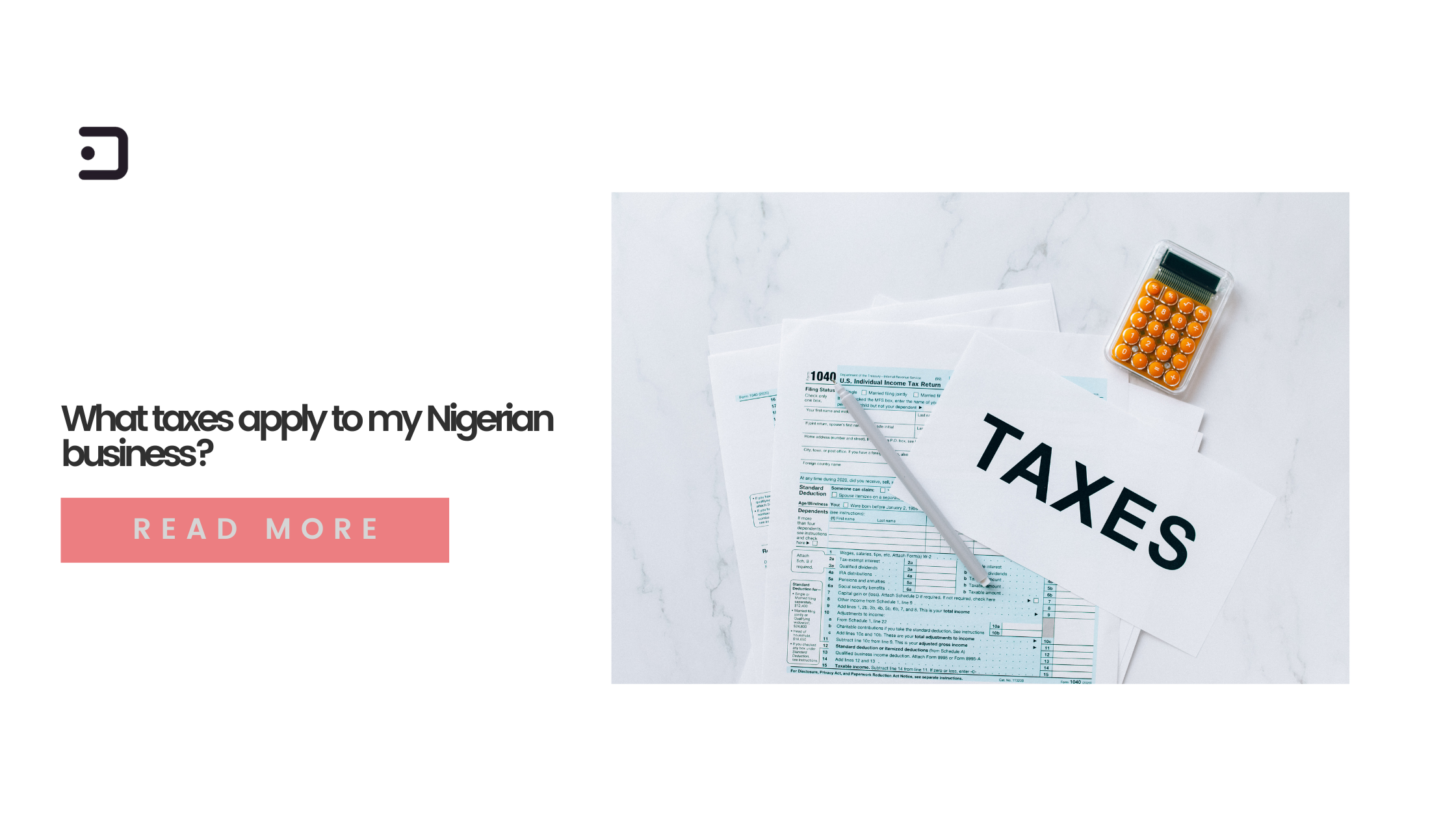Small businesses in Nigeria are required to pay the government a variety of taxes. Before starting operations in Nigeria, it is crucial to understand the taxes that small businesses will be charged.
The government expects businesses to begin sending a certain percentage of their profits to them as soon as they are registered. While small businesses may be exempt from paying corporate income taxes depending on their turnover, it is important to note that they are not entirely exempt from paying taxes.
Nigerian business taxes that must be paid:
- Personal Income Tax- The Personal Income Tax Act (Cap P8 LFN 2004), which governs all small business owners, requires them to pay their personal income tax for each year of assessment from their source of income, which includes the small business’s profit. It is paid as a direct assessment and is required of small business owners who operate as sole proprietors. Without receiving a warning or demand from the appropriate tax authority, the tax is paid from the income earned in the prior year. The 31st day of January of the following year serves as the due date for remittance. Although the Federal Inland Revenue Service (FIRS) is in charge of collecting this type of tax, the State government instead collects it through the State Inland Revenue Service (SIRS).
- Company Income Tax- This type of tax is levied on the profits of businesses established in Nigeria and is paid to the federal government. The new Finance Act of 2019 does, however, completely exempt small businesses with a yearly turnover of under N25 million from paying company income tax. As a result, small businesses with a gross turnover of less than N25 Million Naira pay no company income tax.
- Value Added Tax– Value-added tax (VAT), also referred to as sales tax, is levied against customers who purchase goods and services from small business owners and must be paid to the State Inland Revenue Service. The tax is due on the sales of particular goods and services provided by small business owners. The tax rate that must be paid on the purchase of these goods and services is 7.5%.
- Withholding tax—This tax is collected from payments owed to businesses or people who provide goods and services to people or businesses in Nigeria, whether they are residents of Nigeria or not. Depending on the type of payment or transaction, the beneficiary of the payment, and whether it is an individual or a corporation, withholding tax is levied at a rate of 5% or 10%.
- Business Premises Levies– This levy is a type of tax that is paid to the State government on real estate that is used to generate income, such as office buildings, factories, etc. The standard tax rate for registration is N10,000 (ten thousand Naira), followed by N5,000 (five thousand Naira) for subsequent renewals in urban areas, and N2,000 (two thousand Naira) in rural areas. In Lagos State, this type of tax is paid to the Lagos Internal Revenue Service.
Small business owners must also register with the State Inland Revenue Service and obtain a Tax Identification Number (TIN) in order to pay their applicable taxes. The TIN is merely a personal identification number that is used to identify a business owner when filing tax returns with the appropriate authority.
Conclusion
A small business’s ability to grow depends on its ability to pay taxes, and making sure the business is in compliance with the law helps protect it from default and penalties. Paying taxes as a small business is also advantageous to the business owner because it demonstrates the business’s commitment and enhances its reputation, particularly when interacting with investors.
…………………………………………………………………………………………………………………
About Dukka
Dukka is a leading bookkeeping and payments app. We provide solutions for bookkeeping, payments, cash flow management, and access to finance for small businesses in Africa. We are building an OS for commerce for African merchants.
To learn more about what Dukka is doing or to have a general chat, visit Dukka.com.






1 Comment
Awesome!